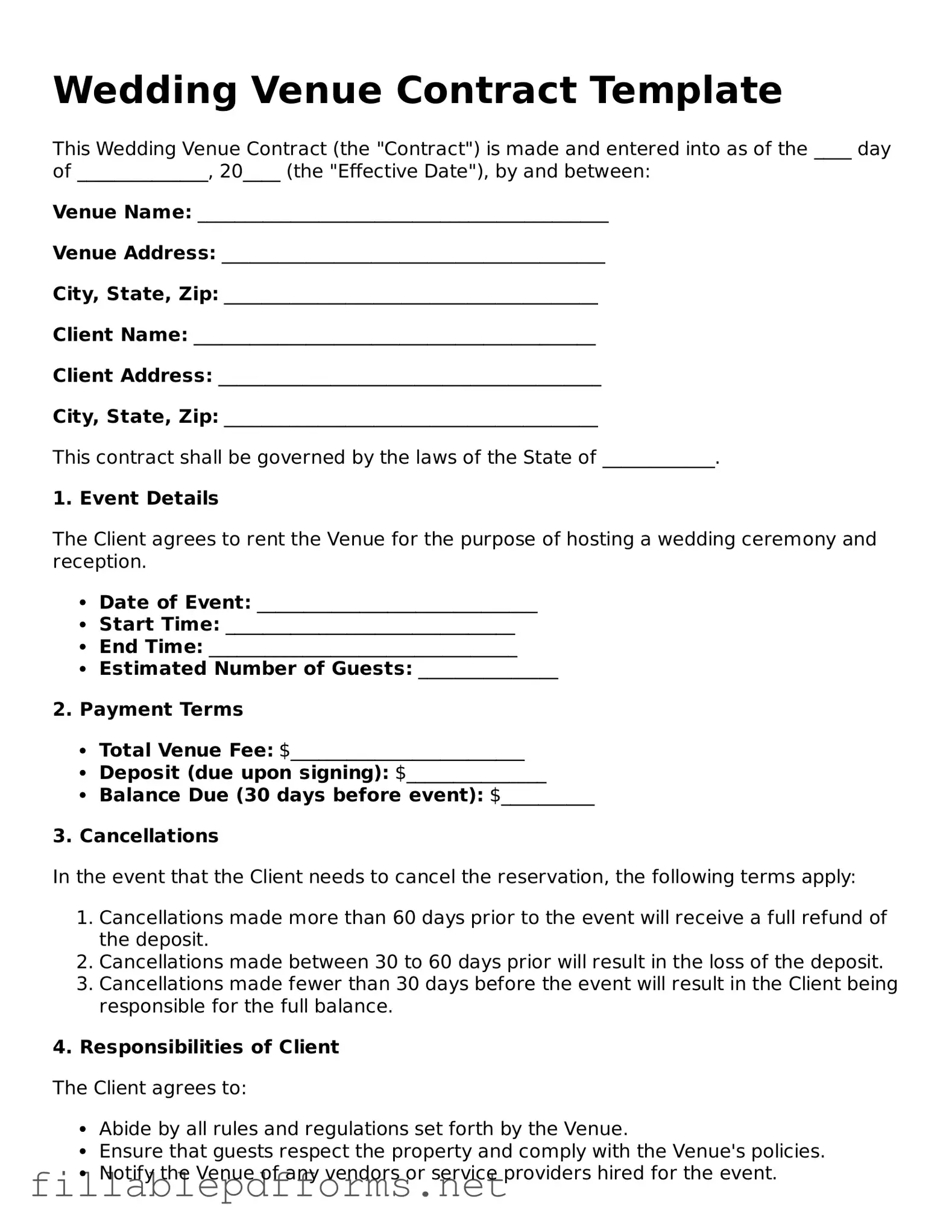Blank Wedding Venue Contract Template
A Wedding Venue Contract is a legally binding agreement between a couple and a venue, outlining the terms and conditions for hosting a wedding. This document ensures that both parties understand their rights and responsibilities, helping to avoid misunderstandings. By clearly defining the details of the event, the contract serves as a vital tool for a smooth and successful wedding day.
Launch Editor Here

Blank Wedding Venue Contract Template
Launch Editor Here

Launch Editor Here
or
▼ Wedding Venue Contract PDF
Almost there — finish the form
Complete Wedding Venue Contract online fast — no printing, no scanning.